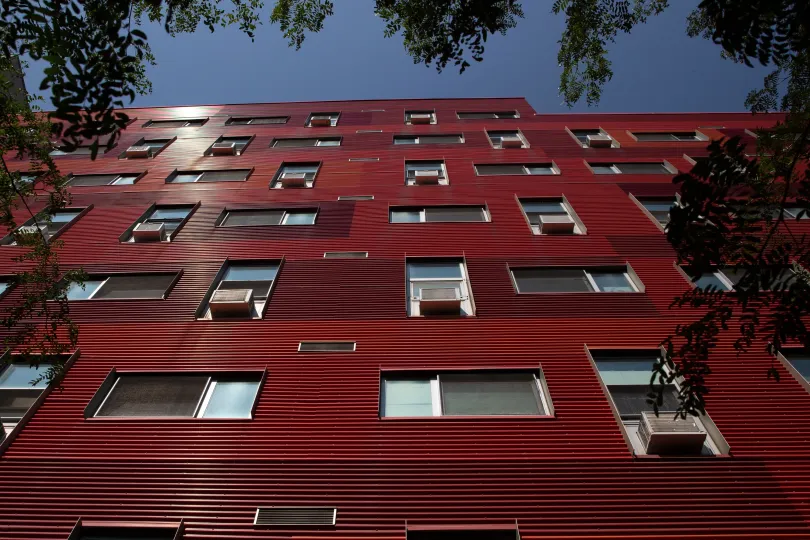What to Do When Your Apartment Is Too Hot
There is no legal right to be cool in New York City as there is with heat in the winter. Still, you can push your landlord to fix your AC — or find a public cooling center.

The sun glares off the side of an apartment building near the Brooklyn Navy Yard, July 25, 2023. | Ben Fractenberg/THE CITY
 This article was originally published on by THE CITY
This article was originally published on by THE CITY
It’s the dog days of summer, and your apartment is boiling – again.
What’s a tenant to do when the thermometer climbs? Unlike in the winter, New York City landlords have no legal obligation to control the temperature in your space when it’s hot out. Though that could change.

Brooklyn Boro
View MoreNew York City’s most populous borough, Brooklyn, is home to nearly 2.6 million residents. If Brooklyn were an independent city it would be the fourth largest city in the United States. While Brooklyn has become the epitome of ‘cool and hip’ in recent years, for those that were born here, raised families here and improved communities over the years, Brooklyn has never been ‘uncool’.